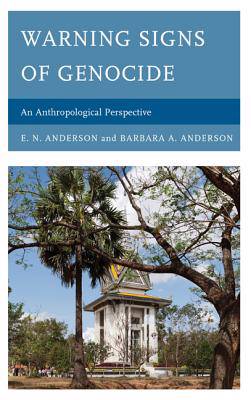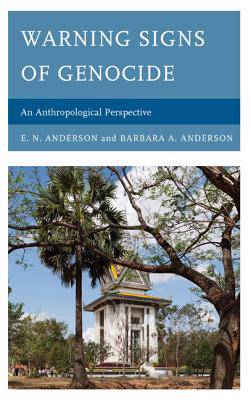
- Afhalen na 1 uur in een winkel met voorraad
- Gratis thuislevering in België vanaf € 30
- Ruim aanbod met 7 miljoen producten
- Afhalen na 1 uur in een winkel met voorraad
- Gratis thuislevering in België vanaf € 30
- Ruim aanbod met 7 miljoen producten
Zoeken
Warning Signs of Genocide
An Anthropological Perspective
E N Anderson, Barbara A Anderson
Paperback | Engels
€ 103,45
+ 206 punten
Omschrijving
Genocide has been a major killer over the last century and more. Warning Signs of Genocide: An Anthropological Perspective reveals warning signs of genocide, finding that it normally occurs when a political regime takes power by exploiting group hatreds, and later feels itself threatened and insecure.
Specificaties
Betrokkenen
- Auteur(s):
- Uitgeverij:
Inhoud
- Aantal bladzijden:
- 230
- Taal:
- Engels
Eigenschappen
- Productcode (EAN):
- 9781498503822
- Verschijningsdatum:
- 10/10/2014
- Uitvoering:
- Paperback
- Formaat:
- Trade paperback (VS)
- Afmetingen:
- 156 mm x 228 mm
- Gewicht:
- 344 g

Alleen bij Standaard Boekhandel
+ 206 punten op je klantenkaart van Standaard Boekhandel
Beoordelingen
We publiceren alleen reviews die voldoen aan de voorwaarden voor reviews. Bekijk onze voorwaarden voor reviews.







